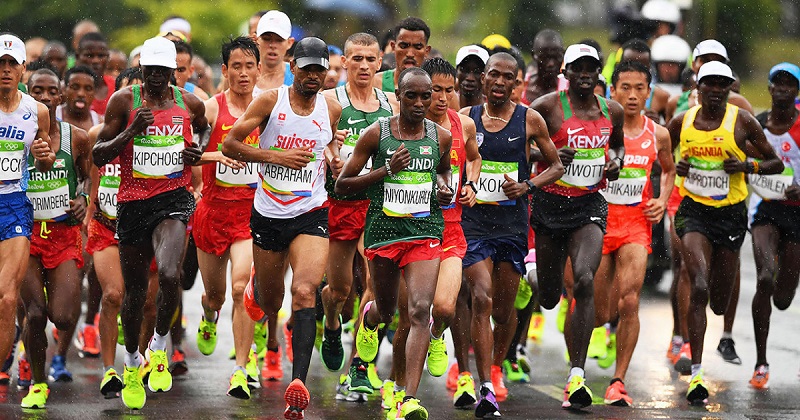
Now, I know what you’re thinking, “Wait, what? I thought we were just trying to get off the couch for a bit to stay active and now you’re taking about running a marathon?” And I don’t blame you. The thought of running a marathon is a daunting prospect for most people, but as you start finding yourself in better physical condition and running more regularly, it’s definitely something I would suggest you start thinking about. For me, outside of family life, nothing is more satisfying than completing a hard-fought battle on the road and it’s a feeling you never really understand until you’ve done it.
However, running marathons are not easy, which is why before we can even write about running one, you need to think about preparing for one. So for those of you with the aspiration to eventually push yourself to that iconic mark in racing hopefully, I can inspire you to start making those first steps and get you preparing for that marathon in the future.
For me, as someone who has run over 40 marathons and ultramarathons, there is something special about the 42.2km distance. Perhaps it’s the prestige, but I also think it’s the perfect balance of challenge, fun and satisfaction that few other events can give you. I find 21kms a little too short of a challenge (yes, there is something wrong with me) and the ultramarathon’s a better achievement, but a long, hard mental slog that takes away some of the enjoyment. While completing something like the Comrades marathon is one of the most special moments you can ever feel, it’s also a horribly long day where you suffer for most of it, whereas a traditional marathon at least allows for a lot more enjoyable experience for most of it. I say most of it, because no matter how well you prepare you will always reach that special moment when you start regretting your life choices and you need to push hard to finish.
All of this though is why preparation for a marathon is so important. And while I will never promise your first marathon experience will be a pain-free one, because none of them will, training right will certainly make the journey a better one. I also want to mention now that much of what I have learnt about training for marathons has come from lessons learnt in making bad decisions. So, please don’t be me and learn from my mistakes.
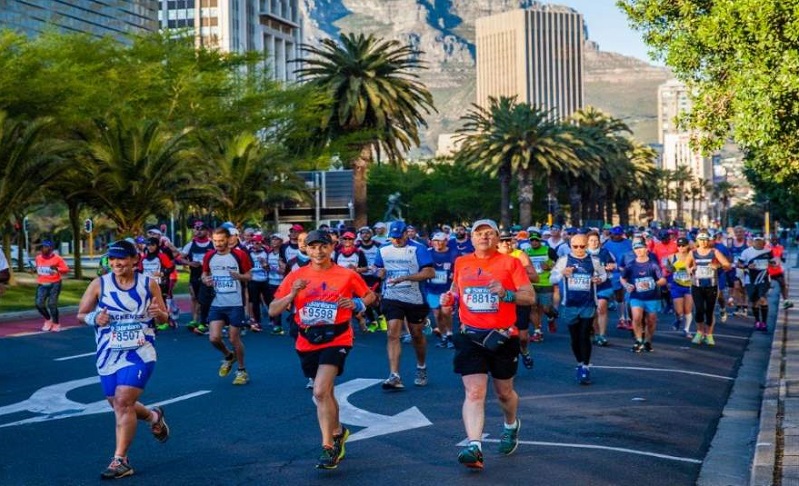
Don’t rush; give yourself time
You can’t just decide to one day run a marathon without sufficient training for it. So, if you’re eyeing that special event to mark your maiden marathon triumph, it’s best to give yourself 4-6 months to get ready for it. It’s good to have a goal in mind so that you have something to work towards but you want to ease into the increased training load. The training guides for the Cape Town Marathon are normally pretty good to follow once you’ve run your first 10km.
Get yourself a decent pair of long-distance shoes
Not all running shoes are the same and you will want to make sure you have the right footwear that is designed for a marathon type race that has lots of cushioning and can handle higher than average mileage. The following guide will help.
Increment your training load by 15-25% each week
To prevent injury, it’s best to not overdo your training too early and rather ramp up your training slowly. What this means is that if you’re used to running 20km a week, do just 5km extra in the week split over 1 or 2 runs to gain that mileage.
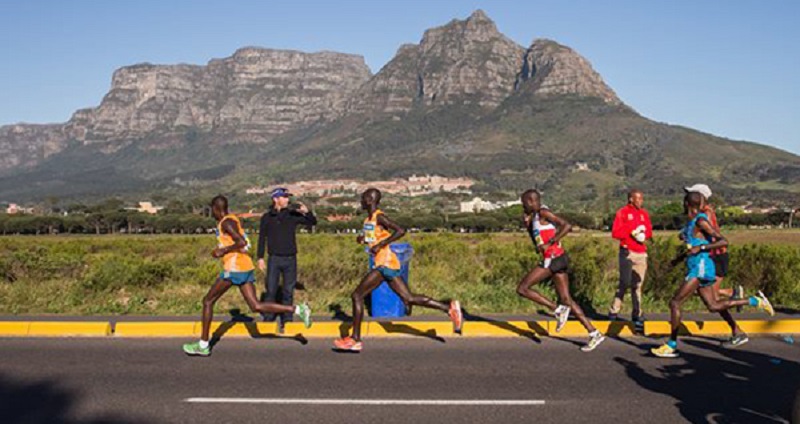
Find a group/club that has a long run on the weekends
Increasing your weekly mileage is one thing, but your body needs to get used to running long distances in one short stretch. These days, many clubs and running groups exist that provide for a long run like this. And how far is a long run exactly – preferably more than 20km if possible. While 15km are useful, it’s just too different from a marathon to be of use and you really need something more than a half marathon to get that mileage in.
When you do your first long runs, work it into your weekly mileage so if you need to do 35km for a week and you are going to be attempting a 25km run for the first time, only run 10km during the week. Your body will be sore after your first long run, but because your body is slowly adapting to the increased mileage, you will find you should recover quickly.
And the reason why I suggest a running group over a race is just that races can easily put you under pressure to complete it in a short space of time. What you actually want is a gentle slow run to put time on your legs. Which brings me to my next point
Have plenty of SLOW runs, but don’t forget strength training
While you need to always incorporate strength and speed training into your work out, what is more important for marathon training is time on your legs over speed. And by slow, I mean – really take it easy. Take your 10km pace and increase it by 2-3min/km if you can. It might frustrate you, but it will help your body get used to the added time on your legs.
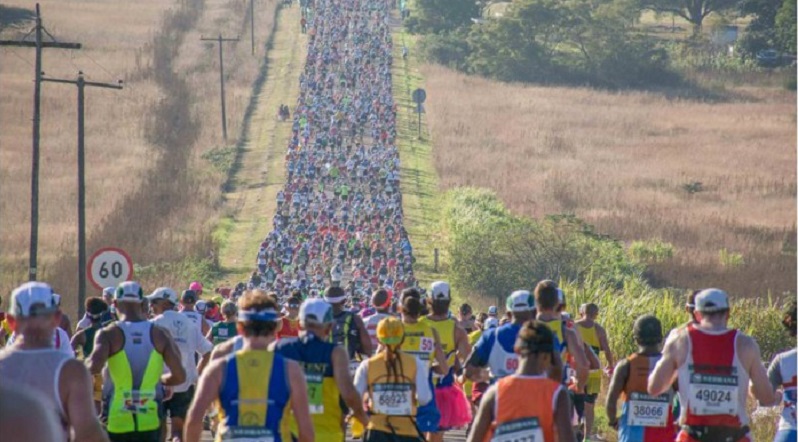
Eat Healthily
It goes without saying, that you need to ensure you’re not just running right, but eating right too.
Test your race
Only about 1 month before a race should you attempt a long run at a decent enough pace that you intend to run your marathon at. This should be at a preferable distance of around 28km-30km and see you starting slow and then easing into your expected marathon pace. This will also be where you can get used to how your nutrition for the race. So, if you normally take supplements run with them here. Don’t just use it for the first time on race day.
This is also where you need to figure out your hydration strategy and if possible, take water every 3-6kms as you would in a race and get the right balance of energy drink and water, so your body is ready for it. Drinking too much coke while running during a race when you’re not used to it can cause stitches on race day, so again, if you need an energy drink, get your body into it. I personally prefer to steer clear of artificial stimulants, but everyone is different.
I would recommend as much as possible to do at least 2-3 of these test runs before your first marathon. It helps ease your body into it and by the time you start doing these test runs, combined with your shorter, weekly runs you should be exceeding 40km a week anyway, which is perfect for a marathon. This will make sure your body will be able to adapt to a marathon pace when needed.
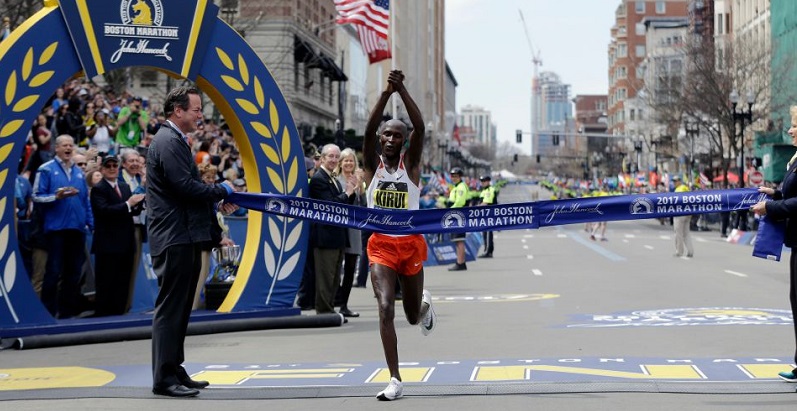
Rest and Have fun.
As you increase in mileage it’s easy to overtax your body and once again, get injured. As you start doing longer training runs, you will need more time to recover from them and so give yourself those 2-3 days you need to rest if you need. This is also where it helps to start focusing on a marathon earlier. It’s sometimes useful midway through your 3-6 month training schedule to take a week off to rest your body and more importantly your mind. There is no point in any of this if you’re not going to enjoy the journey, so prevent the mental fatigue by allowing your mind and body to take it easy.
Next week, I’ll talk about the actual strategy of running a marathon. Lazy people, you’ve been warned.
Last Updated: September 7, 2018





















For the Emperor!
September 7, 2018 at 15:39
One day perhaps. Was going to have my first 9km trail run race this weekend (my first race since 1998*), but it got postponed to a date I am not in town. So now the training continues.
Goals in the next year (basically there already):
1 – Fit/healthy enough for Kilimanjaro
2 – Fit/healthy enough for Everest Base Camp
3 – Fit/healthy enough to do a couple of 9-20km trail run races
Extended goals for next two years (very lofty goals)
1 – Fit/healthy enough for a few 30-50km trail run races
2 – Fit/healthy enough for one (and only one) 180km trail run in the Alps!
*I don’t count Parkruns
For the Emperor!
September 7, 2018 at 15:40
PS – these articles help me thanks 🙂
Original Heretic
September 7, 2018 at 16:07
My brother climbed Kili, jeez, about a decade ago now.
Still says it’s one of his best experiences ever, but one that he will not ever, EVER repeat.
He nearly blinded himself on the last leg of the climb, too! His one eye was frosting up in the cold, so in a moment of sheer stupidity, he was about to pour water from his canteen onto it, to try wash the frost away. Luckily his one climbing partner saw what he was doing, knocked the canteen out of his hand, swore at him, kakked him out up and down, because he basically nearly froze his eyeball.
Kromas
September 7, 2018 at 15:41
Reading this articles eating chips thinking …… every corpse on Everest was once a motivated person.
Lord Chaos
September 7, 2018 at 18:51
“Vegans aren’t weak”
*climbs mount Everest to prove it
*Dies
Original Heretic
September 7, 2018 at 16:08
Article title is an oxymoron.
“Lazy person” and “preparing for a marathon” are things that don’t belong together.
Lord Chaos
September 7, 2018 at 18:51
SO bad for the knees, I’ve had Osgood-Schlatter disease for going on 20 years now where my calf growth has stretched the knee tendons to the point of “broken bone pain during winter” I can still sprint, with my big arse body, but I don’t think we’re made for running those distances and having pinkies for legs anymore.
*Imagines Thor Bjornsson running a marathon, or Hammer for that matter